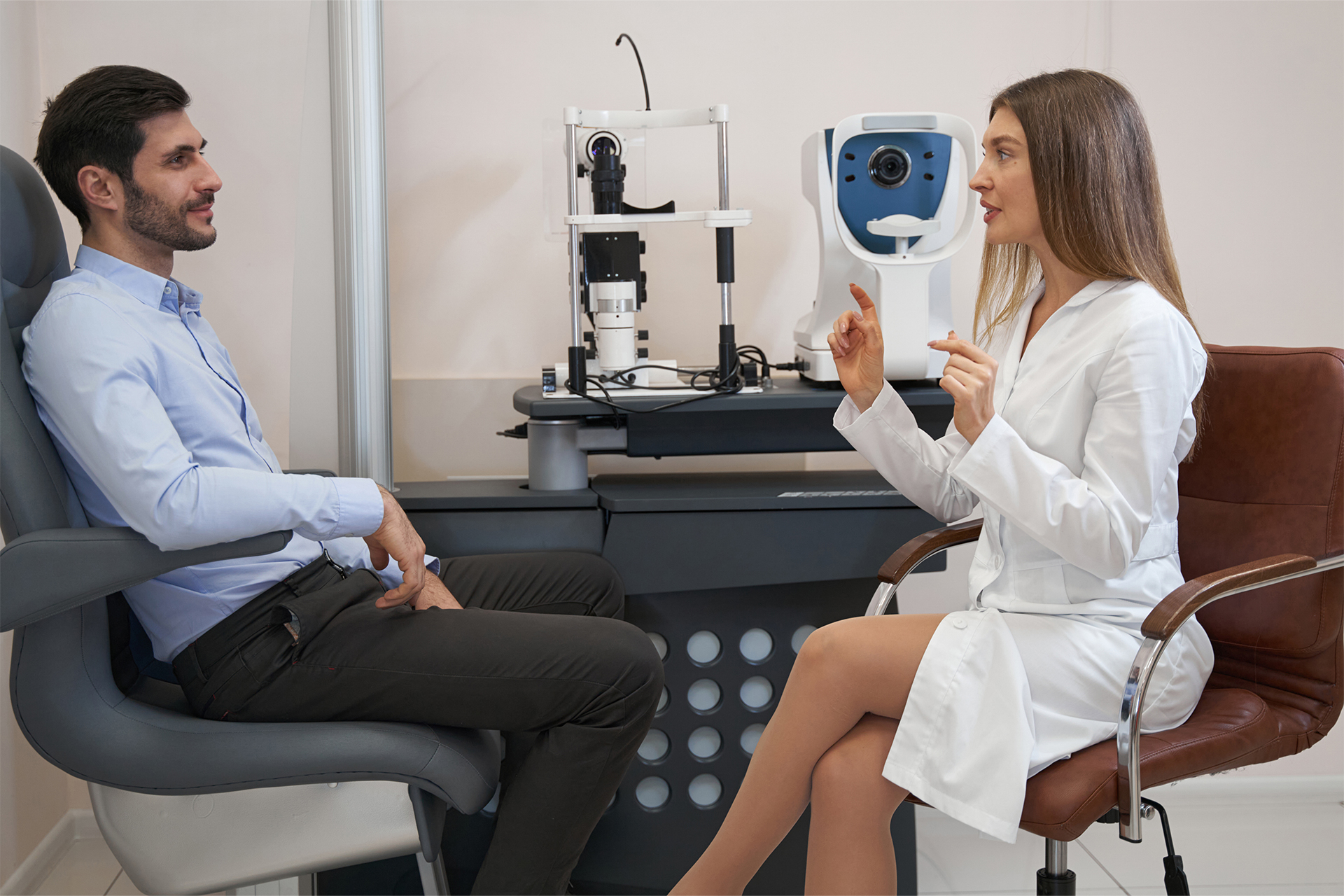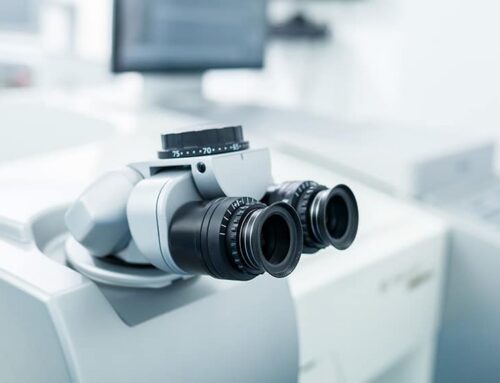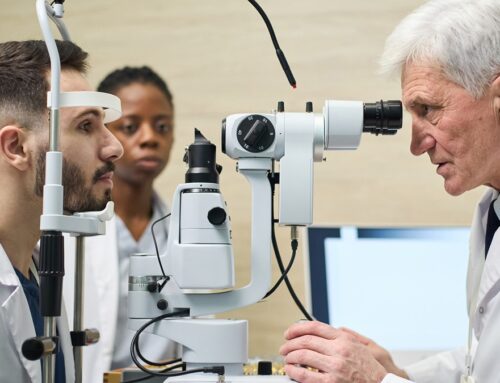One of the most common questions younger patients ask eye doctors is, “How old do you have to be to get LASIK?”
LASIK (Laser-Assisted In Situ Keratomileusis) surgery is popular choice for individuals seeking to improve their vision and reduce their reliance on glasses or contact lenses. One of the most common questions surrounding this procedure is related to age requirements.
In this comprehensive guide, we’ll explore the minimum and maximum age for LASIK, the best age for undergoing the procedure, other candidacy requirements, who shouldn’t get LASIK, and alternative vision correction options.
Minimum Age for LASIK
The minimum age is typically 18 years old. This is because the eyes are still developing during childhood and adolescence, and it’s essential to ensure that the vision is stable before undergoing a vision correction procedure like LASIK.
More important than age is stability. If you are over 18, but your prescription has been continually changing, it may be best to wait until it stabilizes before having LASIK.
Maximum Age for LASIK
There is no strict maximum age. As long as the individual’s eyes are healthy, and they meet other candidacy requirements, LASIK can be performed at any age.
However, it’s essential to consider factors such as overall eye health, the presence of age-related eye conditions like cataracts or glaucoma, and the stability of vision before undergoing LASIK surgery.
Best Age for LASIK
The best age for this procedure can vary depending on individual circumstances. In general once your eyes are stable, the sooner you have it, the more longevity you will get out of it.
Considerations for Different Age Groups
Patients in different age groups should consider different factors when deciding about which vision procedure might be right for them:
Under 18
There are no vision correction procedures that are FDA approved in the U.S. Any treatment would be considered off-label in this age group. Generally, most surgeons require patients to be over 18. However, there are circumstances when the off-label treatment of younger patients may be considered.
Ages 18-43
This is the most popular age range for LASIK, and other vision correction solutions, such as PRK or EVO ICL.
Patients who have stable prescription in this range can get decades of longevity out of procedure. However, as patients get to the older end of this range, they get closer to presbyopia.
Ages 43-60
This is when presbyopia starts setting in. Presbyopia refers to when the natural lens loses flexibility. For most patients this means they will need reading glasses or bifocals.
LASIK remains popular in this age group. However, there may be modifications to the treatment plan to give patients more freedom from reading glasses.
Blended Vision, or monovision, is a popular option for patients in this age group. In blended vision, one eye is optimized for distance vision, and the other for near. With both eyes open, the brain blends the two eyes together to give an extended range of vision.
In these patients, Custom Lens Replacement is a popular choice. As patients get closer to cataract age, it often makes more sense to choose to replace the natural lens, rather than re-shape the cornea.
60 and above
In patients older than 60 (who have not had cataract surgery), it often makes more sense to do Custom Lens Replacement. This is because cataract development will cause the prescription to change and limit the longevity of LASIK.
In fact, most patients over the age of 60 already have at least the early stages of cataracts. For these patients, cataract surgery is typically the best procedure to correct their vision. For more information on everything related to modern cataract surgery, such as laser cataract surgery, lens implant options, and how to find a cataract surgeon near you, check out the Best Cataract Surgeons website.
In patients who have already had cataract surgery, LASIK is a common procedure that’s used for enhancements or “touch-ups”.
Other Candidacy Requirements for LASIK
In addition to age, several other factors determine whether an individual is a suitable candidate for this procedure. These include:
- Stable Vision: Candidates should have stable vision for at least one year before undergoing the procedure.
- Good Eye Health: Candidates should have overall good eye health, with no active eye infections, inflammation, or other ocular conditions that could affect the outcome of the surgery.
- Healthy Corneas: Corneas of adequate thickness and shape are required to be a good LASIK candidate. Corneal diseases, dystrophies, or scars may make you a poor candidate for LASIK.
- Absence of Certain Medical Conditions: Certain medical conditions, such as active autoimmune disorders, poorly controlled diabetes, and certain eye diseases, may disqualify individuals from undergoing LASIK surgery. It’s essential to discuss any existing medical conditions with your ophthalmologist during the consultation process.
Who Shouldn’t Get LASIK
While LASIK is a safe and effective procedure for many individuals, there are certain cases where LASIK may not be suitable. Individuals who fall into the following categories may not be good candidates for LASIK:
- Unstable Vision: Individuals whose vision has not stabilized or has been fluctuating over the past year may not be suitable candidates for LASIK.
- Pregnancy or Nursing: Hormonal changes during pregnancy and breastfeeding can affect vision, making it less predictable. Therefore, LASIK is generally not recommended for women who are pregnant or nursing.
- Certain Eye Conditions: Individuals with certain eye conditions such as keratoconus, cataracts, or severe dry eye syndrome may not be suitable candidates for LASIK. Additionally, individuals with a history of corneal infections or inflammation may not be good candidates.
- Thin Corneas: LASIK requires a certain corneal thickness to safely create the corneal flap and perform the laser reshaping. Individuals with thin corneas may not be suitable candidates for LASIK.
Alternatives to LASIK
For individuals who are not suitable candidates for LASIK or prefer alternative vision correction options, several alternatives are available, including:
- EVO ICL (Implantable Contact Lens): The ICL is rapidly growing in popularity in the United States. The procedure, which is reversible, involves implanting a lens implant inside the eye.
- PRK (Photorefractive Keratectomy): PRK is a similar laser eye surgery to LASIK but involves removing the corneal epithelium (outer layer) instead of creating a flap. PRK may be suitable for individuals with thin corneas or other contraindications to LASIK.
- Custom Lens Replacement (CLeaR): CLeaR involves replacing the natural lens of the eye with an artificial intraocular lens to correct refractive errors. This option may be suitable for individuals with presbyopia or age-related changes in vision.
- Glasses or Contact Lenses: Traditional glasses and contact lenses remain effective options for vision correction for individuals who are not candidates for surgical procedures or prefer non-surgical alternatives.
Conclusion
In conclusion, while LASIK surgery offers a safe and effective solution for vision correction for many individuals, age is just one factor to consider when determining candidacy for the procedure. It’s essential to consult with a qualified ophthalmologist to assess your individual suitability for LASIK and explore alternative vision correction options if necessary. With proper evaluation and guidance, you can make an informed decision about the best approach to achieve clearer vision and improve your quality of life.







